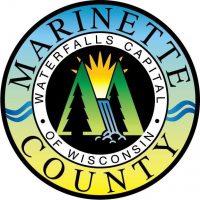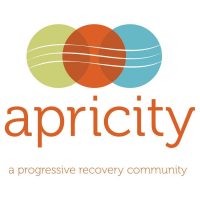Marinette County Human Services Department - ADAPT Clinic
Drug Rehab Center in Marinette, Wisconsin
The ADAPT Clinic, located in Marinette, Wisconsin, is a state-licensed and accredited addiction treatment center that provides outpatient care for individuals recovering from alcohol and opioid addiction, substance abuse and dual diagnosis, supported by private health insurance, aftercare support and rehab services.
About This Wisconsin Facility
The Marinette County Human Services Department - ADAPT Clinic is a specialized addiction treatment facility located in Marinette, Wisconsin. They provide comprehensive care and treatment for individuals struggling with addiction, substance abuse, and dual diagnosis. The clinic provides Residential, Outpatient, and Aftercare support, as well as drug rehab programs. ADAPT is accredited by the State License, as well as by various private health insurance providers.
At ADAPT, they specialize in treatment for Alcoholism, Opioid Addiction, Substance Abuse, Dual Diagnosis, and Drug Addiction. Services include assessment and diagnosis, medical attention, individual and group therapies, and addiction education. In addition to this, they offer individual and family counseling, life skills training, and relapse prevention. The clinic also has programs in place to ensure long-term recovery success, including support groups, sober activities, and assistance with job and housing searches. With their comprehensive approach and experienced team, the ADAPT Clinic is committed to helping individuals find recovery and pursue a healthier lifestyle.
Genders
Ages
Modality
Additional
Accreditations
State License
Conditions and Issues Treated
Substance abuse typically leads to addiction, which requires specialized treatment programs at Marinette County Human Services Department - ADAPT Clinic to address. Many people benefit from inpatient drug rehabilitation, which includes inpatient acute care and residential rehabilitation. Other levels of care include intensive outpatient therapy, individual counseling, and support groups. Family therapy is also an essential part of treatment for substance abuse.
A combination of treatments is often needed to treat drug abuse issues effectively. In the case of drug abuse, there is no easy answer or one-size-fits-all cure.
Opioids are a series of medicines that are used for pain relief. Opioid addiction refers to the compulsive pursuit of opioids, even though they are not medically needed. Medication-assisted therapy at Marinette County Human Services Department - ADAPT Clinic in Marinette, WI requires care in which both medications, medication, and behavioral treatments are used.
Substance use disorder falls under two categories: Alcohol or Drug Abuse and Drug Dependence. An individual suffering from a substance use disorder and mental health disorders is said to have a co-occurring disorder or a dual disorder.
Individuals with substance use disorders and mental health problems are said to suffer from a ‘dual diagnosis’. The most frequently identified mental health issues found in individuals with substance use disorders include anxiety, depression, schizophrenia, and schizoaffective disorder.
Levels of Care Offered at Marinette County Human Services Department - ADAPT Clinic
This center offers a variety of custom treatment tailored to individual recovery. Currently available are Aftercare Support, Drug Rehab, Dual-Diagnosis, Outpatient, with additional therapies available as listed below.
When remaining at their job in Marinette, or continuing their studies, the individual may live with their family while utilizing Marinette County Human Services Department - ADAPT Clinic‘s outpatient services. Treatment requires counseling the patient at the individual level, in a group setting, about substance addiction, drugs, and therapy sessions.
Aftercare support involves the support given to a Marinette, Wisconsin patient after they complete treatment. It helps them adjust to normal life. It may include setting them up in a halfway house and enrolling them in programs like Narcotics Anonymous (NA) and Alcoholics Anonymous (AA). Marinette County Human Services Department - ADAPT Clinic‘s patients may also be provided with career training to help them get back into the job force.
Therapies & Programs
Couples therapy aims to rebuild the trust between the partners. Partner’s involvement in the process will result in greater chances of treatment success. Couples therapy addresses financial issues, loss of trust, lack of intimacy, and physical abuse.
Family therapy is a set of therapeutic approaches that assumes that the entire family is a system. It utilizes the strengths and resources of the family to help the patient refrain from resorting to substance abuse. The impact of substance abuse is not just on the patient but on the entire family. Family therapy ensures that the patient gets adequate support from the family members after the treatment making the recovery process sustainable
- Family therapy guides all the members of the family to help the patient.
- It helps to repair relationships and improve communication between family members.
- It helps to keep the patient engaged and motivated throughout the treatment.
Group therapy is an important tool in recovery. Finding a peer group in Marinette, WI and others who relate to your situation is a fundamental tool for recovery at Marinette County Human Services Department - ADAPT Clinic. Addiction tends to lead to isolation and feelings of uniqueness. The accountability and friendship that is found in group therapy can be more effective than any single other treatment approach. This is generally introduced early in recovery and is recommended as a lifetime treatment habit.
Trauma therapy is a way of addressing trauma while in a safe situation in order to heal. This may involve Marinette County Human Services Department - ADAPT Clinic managing individual or group counseling or both. Other forms of therapy have been proven to assist in healing past traumas.
A type of cognitive-behavioral therapy is Dialectical Behavioral Therapy. It is intended for those who are vulnerable to self-harm and suicidal thoughts. Marinette County Human Services Department - ADAPT Clinic aims to help patients understand the connection between their feelings, emotions, and behaviors and provide them with the tools to make a difference in Marinette, WI. For those whose addictions and habits originate from severe mental health problems, it is beneficial.
Negative feelings are common in substance abuse disorders. If not recognized, they can cause co-occurring disorders. CBT involves strategies that help to change the thinking and behavioral pattern. It can be administered as a monotherapy as well as a part of combination therapy.
Rehabilitation is not just limited to bringing an individual out of addiction and achieving sobriety. It is considered complete only when an individual starts leading a normal and balanced life. Life skill therapy focuses on the various skills that help an individual to lead a normal life. Patients often do not take care of themselves, struggle professionally, and withdraw from social interaction due to addiction’s physical and emotional disturbances.
Life skills therapy helps people in Wisconsin improve various personal, professional, and social skills such as cooking healthy meals, maintaining proper hygiene, budgeting, decision-making, time management, regulation of emotions, and effectively resolving interpersonal conflicts.
The first three steps depend on the patient, so they are more specific and situational. The succeeding four steps center on practical issues brought on by substance abuse. Steps 8 and 9 deal with the social and emotional repercussions of addiction, encouraging patients to make amends to people they have wronged. These are followed by two steps revolving around the further exploration and reinforcement of Steps 1 to 9.
The last step requires an individual to extend a helping hand to people who are still in the early stages of their recovery.
Payment Options Accepted
For specific insurance or payment methods please contact us.
Is your insurance accepted?
Ask an expert, call (888) 674-0062
Additional Details
Specifics, location, and helpful extra information.
Marinette, Wisconsin 54143 Phone Number(715) 732-7760 Meta DetailsUpdated November 25, 2023
Staff Verified
Patient Reviews
There are no reviews yet. Be the first one to write one.
Marinette, Wisconsin Addiction Information
Wisconsin has some of the highest rates in the United States for both adolescent and adult substance abuse. Since 2009, the state has been experiencing the same escalating rates of drug abuse and addiction as the rest of the country. The major concerns are the misuse of prescription painkillers and the escalating number of deaths due to alcohol-related liver disease.
Treatment in Nearby Cities
- Phillips, WI (140.2 mi.)
- Wautoma, WI (107.7 mi.)
- New Holstein, WI (82.5 mi.)
- Mayville, WI (119.7 mi.)
- Superior, WI (242.2 mi.)
Centers near Marinette County Human Services Department - ADAPT Clinic
The facility name, logo and brand are the property and registered trademarks of Marinette County Human Services Department - ADAPT Clinic, and are being used for identification and informational purposes only. Use of these names, logos and brands shall not imply endorsement. RehabNow.org is not affiliated with or sponsored by Marinette County Human Services Department - ADAPT Clinic.



